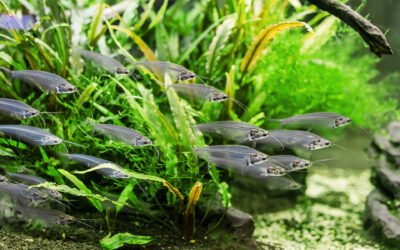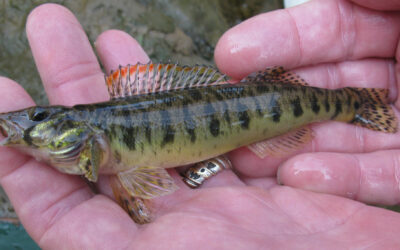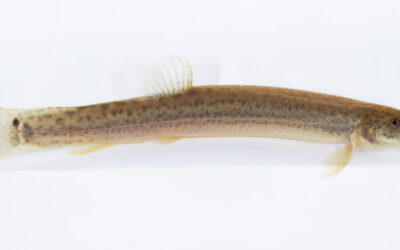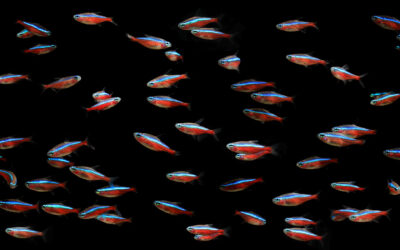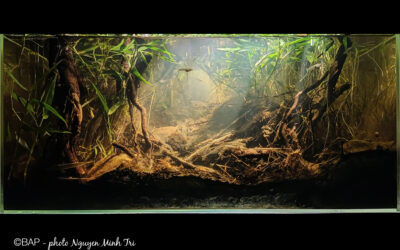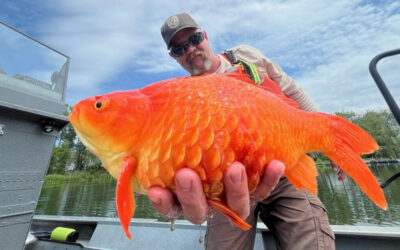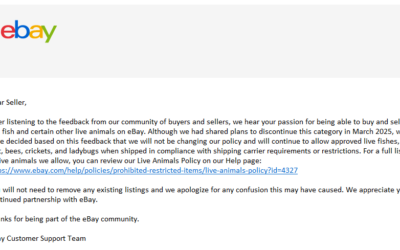American Humane Society announces that Quality Marine (including freshwater company Aquatropic and aquaculture facility QM Labs) earned the American Humane Certified™ distinction for high standards of care and treatment of animals.
News & Notes Articles
Pet Advocacy Network Submits Testimony Opposing Proposed Arizona Pet Fish Restrictions
Kryptopterus vitreolus, the Glass Catfish, is one of several iconic aquarium fish species that could soon be banned from ownership in the state of Arizona if proposed rules are made law. The Pet Advocacy Network is pushing back.
Roanoke Logperch Delisted from Endangered Species List
After reviewing the best available science, the U.S. Fish and Wildlife Service has determined the Roanoke logperch — a large freshwater darter — is no longer at risk of extinction and will be removed from the federal list of endangered and threatened wildlife.
Weather Loach featured on USFWS Fish of the Week Podcast
This week’s podcast starts with researcher Wesley Gerrin recounting the 2020 discovery of some unusual, eel-like fish during a routine fish survey at a site called “Redneck Beach”, a college kid hangout described as “a cesspool of idiocracy” on Georgia’s McNutt Creek…
Pet Advocacy Network Calls to End Tariffs on Live Tropical Fish
The Pet Advocacy Network has set up an easy system to allow individual aquarists to contact their representatives and request an end to U.S. import tariffs on live tropical fish.
2025 Biotope Aquarium Contest Launches
The next installment of the annual Biotope Aquarium Contest (BAC) is getting underway! This online contest is free for participants, with freshwater and brackish aquariums welcomed. Pre-registration starts April 20th, and submissions open May 20th, 2025.
sera and Interpet Join Forces
sera and Interpet are moving forward together into the future. Two strong family-owned businesses with a deep passion for aquaristics and fishkeeping are combining their expertise to offer even more innovative products and solutions for aquarium and pond enthusiasts. This partnership sets new industry standards and brings numerous benefits to customers across Europe and beyond.
New U.S. Import Tariffs on Fishes and Corals
Emark Tropical Imports outlines substantial tariffs, ranging between 10 and 54 percent, that will impact all fishes and corals imported to the U.S. for the aquarium hobby.
USFWS Reminder: “Call me Megalodon”
“This goldfish isn’t supposed to be here. But someone released it, thinking they were being kind. Instead, they created an invasive problem that can last decades,” writes USFWS.
Stunning Reversal: eBay Walks Back Animal Ban
On Monday, February 24th, 2025, we received a copy of a surprising email from eBay. In summary, the online marketplace and auction juggernaut eBay appears to be reversing the animal sales policy, banning nearly all live animal sales, which eBay had announced just days prior on February 19th.


